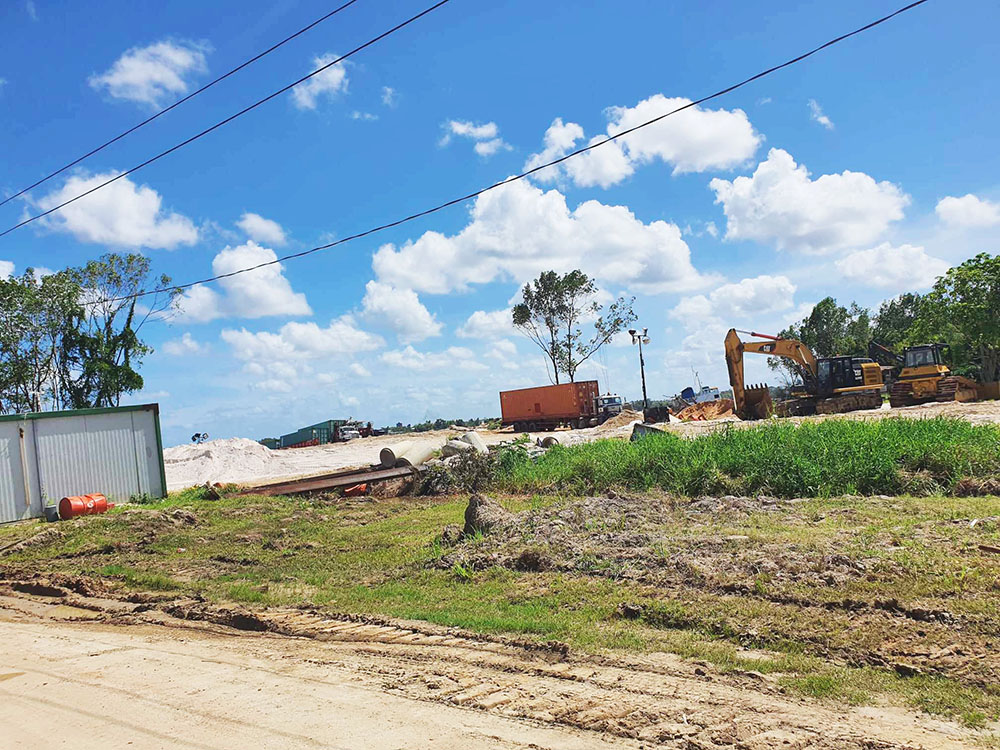Buoyed by a victory that has seen the US deciding to pause approvals for pending and future applications to export liquefied natural gas (LNG) from new projects, climate activists are now aiming at overseas projects that Washington may support and this could possibly impact on Guyana’s project which is awaiting a financing decision from the US Ex-Im bank.
Reuters on Friday reported that the US Department of Energy (DOE) will conduct a review during the pause that will look at the economic and environmental impacts of projects seeking approval to export LNG to Europe and Asia where the fuel is in hot demand.
The review will take months and then will be open to public comment which will take more time, US Energy Secretary Jennifer Granholm said in a teleconference.
US President Joe Biden said in a statement: “During this period, we will take a hard look at the impacts of LNG exports on energy costs, America’s energy security, and our environment.”
The pause “sees the climate crisis for what it is: the existential threat of our time,” said Biden, a Democrat.
Administration officials stated that the pause would not hurt allies, as it has an exemption for national security should they need more LNG.
Meanwhile, the New York Times (NYT) reported on January 26 that even though the Biden administration has paused its approval of a major natural gas export terminal in the United States, it faces another big gas decision overseas.
A US$13 billion natural gas export project in Papua New Guinea led by TotalEnergies and Exxon Mobil is on a shortlist of projects set to receive financing from the U.S. Export-Import Bank, or Ex-Im, which supports American businesses around the world.
The NYT said that the Papua LNG gas project would join a portfolio of oil and gas projects the bank funds, including an oil refinery in Indonesia and an oil tank project in The Bahamas. The bank is also considering financing an offshore pipeline and natural gas plants in Guyana.
Some climate activists see a big contradiction between climate actions the government is taking in the United States compared to around the world.
“He’s done so much at home,” said Kate DeAngelis, who works on international finance at Friends of the Earth, a network of environmental organizations that has called on the bank not to finance the project, referring to President Biden.
But he “can’t claim to be a climate champion when the U.S. is propping up this fossil fuel infrastructure all over the world,” she said.
Between 2017 and 2021, Ex-Im Bank, whose board of directors are political appointees, provided nearly US$6 billion in financing for fossil fuels projects and $120 million for clean energy, according to a tally by the Perspectives Climate Group and the nonprofit group, Oxfam.
A senior Ex-Im official told The Times that while the bank “seeks to align with the administration’s climate agenda,” it still needed to comply with statutory requirements, including a “prohibition against discrimination based solely on industry, sector or business.” The bank’s ultimate mission, the official added, was “to support U.S. jobs.”
The NYT said that the Papua gas project has been particularly contentious. It promises to bring wealth to one of the world’s poorest nations, and is staunchly supported by the local government. Its operators are seeking to supply Asian nations with gas in order to move away from coal, the dirtiest-burning fossil fuel and a major driver of climate change.
The gas project “will contribute to the security of LNG supply, especially for customers in Asia, where LNG can substitute coal for power generation and participate in a substantial reduction of CO2 emissions in the region,” Julien Pouget, a vice president at TotalEnergies, said last year.
The NYT said that a previous gas project, led by Exxon and supported by Ex-Im, became mired in allegations of environmental destruction and human rights violations.
On December 15, Guyana’s Finance Minister Dr Ashni Singh met with the Senior Vice President of the US Ex-Im Bank, David Sena, at the Ministry of Finance.
A release from the Ministry of Finance said that the meeting facilitated discussions surrounding the Bank’s support towards Guyana’s Gas-to-Energy project. In July 2022, the Government of Guyana and the EXIM Bank of the United States signed a historic US$2 billion Memoran-dum of Understanding (MOU), with specific focus on infrastructure, energy, water and sanitation, information and communications technology and agriculture.
The Guyana gas-to-energy project is said to be worth US$759m and is thus far being funded by the government as it awaits word from the Ex-Im bank. Aside from the climate implication of the project, analysts say that the bank would have to also be concerned about its viability.
The government here has already hinted that it will look at alternative sources of financing if the Ex-Im bank deal doesn’t come through.
Last week the government unveiled legislation which will allow it to greatly expand the annual extraction from the Natural Resource Fund. This move has been strongly condemned by the opposition and some commentators.





